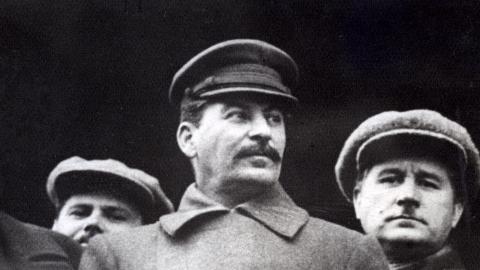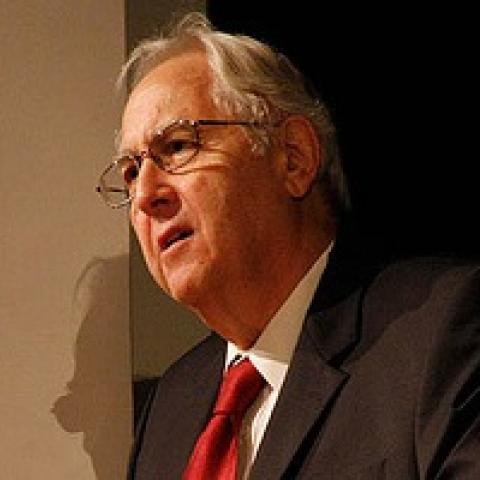Since my earlier blog post on the Russian spy caper, I have been on the radio for two days on scores of nationwide radio programs, from small to large media markets. Hopefully, some of you may have heard some of these, and that these segments have helped inform a new audience about both Pajamas Media and PJTV.
There has been much commentary in all usual outlets, along with some solid reporting, even in The New York Times. But many of those who have chimed in on what the arrest of these eleven people who signed up with the SVR,(the KGB’s successor agency) means, have missed one point in particular. Most of those writing have argued that the group did not get around to actually stealing and passing on any real information that would have helped the Russians, that much of what they sought was publicly available by a simple Google search, and that hence their twenty-year involvement was fairly benign and almost meaningless.
I do not think this is true. First, take the case of one of the eleven, Donald Heathfield, who received an M.A. in Business Administration from Harvard’s Kennedy School in the year 2000. One of his classmates was Felipe Calderon, who is now President of Mexico. Meeting and getting to know such up and comers in the international arena is precisely what the SVR wanted him to accomplish. As the report by Abby Goodnough makes clear, Heathfield was “smart and social,” “mysterious,” “a flavorful conversationalist” with a “dry wit,” as she was told by members of his class. Everyone liked him, and such a man is always a welcome member of the party at events, dinners, cocktail parties and the like. Moreover, he traveled internationally, and he was the one member of his class who regularly kept up with all his classmates, knew where they were and what they were doing, and even visited them abroad. He was, one classmate said, a “joiner.”
Now just imagine what such a person could get for the Russians. Without having to get a government job himself, which the SVR thought might be too blatant a move that might expose them, he could meet with others who in fact were placed well to know important information about future American plans, on foreign policy steps to be taken, among other things. People gossip regularly to trusted friends, especially in the DC cocktail party circuit, even though they are not supposed to. Even a small slip about what someone of importance has learned could be quickly conveyed to the SVR, and when put together with other data, could prove to be important to learn about U.S. intentions.
In other recent cases, we have seen that some sleepers actually did get major government jobs. Recall the arrest last year of two Cuban agents, who picked out of college to be educated for jobs in foreign affairs, got their graduate school salaries paid and the husband of the pair ended up with a sensitive government job, from which he regularly provided the Castro regime in Cuba with top secret US information. Similarly, recall the case of Ana Montes, chief of the Latin American desk at the Defense Intelligence Agency, who after doing much harm, was found to be a Cuban agent who had access to every piece of important classified data. These two, unlike the eleven, were American citizens who enlisted in espionage out of ideological sympathy with the Castro government, not for money. But it shows that Russian trained intelligence services like the Cuban one also cultivated sleeper agents whom they successfully activated.
Of the various commentaries that have been made about the eleven, a few stand out. First, the article by Judith Miller and Doug Schoen note that what they sought was “wide-ranging information about American life and government policy – from ‘intell’ about American nuclear weapons, the Congress, and the CIA’s leadership to Washington’s attitude toward Iran, Afghanistan, the strategic arms reduction talks, and even the gold markets.” Another group of them were holding what the indictment called “work-related personal meetings” with a New York-based financier who, Miller and Schoen write, “was active in politics, who could hopefully provide inside information about the White House, the Democrats, and indeed, the operations of foreign policy.”
This is hardly an unimportant set of goals. Even if a single U.S. secret was not compromised, as they say may well be the case, it was not for want of trying. Indicting them on lesser charges than espionage, such as money laundering, is akin to indicting Al Capone for income tax evasion instead of murder and leading organized crime.
The point is that the FBI carried out a sound counter-intelligence program, and stopped them before it became clear a few of the group were planning to flee. (as evidently the eleventh man in Cyprus has already done) Certainly, it might have been embarrassing to President Obama so soon after the friendly cheeseburger he and the Russian president shared in Virginia, but as the authors point out, the Russian interests have not changed. Recall the Putin once said that the greatest tragedy for Russia was the end of the Soviet Union.
Putin was not referring to the end of Communism in Russia, but to the Soviet empire which almost immediately began to disintegrate. The Russian Government would like to rebuild it, increase its influence abroad, prevent NATO expansion into Eastern Europe in areas once under their control, and generally try to keep the US off balance by flirting with its enemies like Iran. We may talk about new tough sanctions against the Mullahs, but as we know, the US announced them only to soften the actual sanctions a day later in deference to the Russian government’s concerns. Hence I heartily concur with Miller and Schoen’s conclusion, that “Washington’s slobbering love affair with the Russians may be a trifle one-sided. Obama should remember Ronald Reagan’s advice on dealing with the Kremlin rulers: trust but verify.”
The other major article appeared in The Wall Street Journal, and was written by my good friends and colleagues, John Earl Haynes and Harvey Klehr. Going through the long history of Soviet espionage against the United States, they remind us of the many years of placing “deep penetration” agents in our midst, as well as the constant use of “sleeper cells” in the old days of the Cold War.
They write that “There were two Soviet illegals exposed in the late 1950s whose activities came a bit closer to the recently arrested 10. An illegal officer, KGB Col. Rudolf Abel (real name Vilyam Fisher), entered the U.S. in 1948 and operated under a variety of false identities. He was finally exposed when his assistant and fellow illegal, KGB Lt. Col. Reino Hayhanen, defected in 1957. (Hayhanen, of Finnish background, had been sent to the U.S. using false papers identifying him as an American of Finnish ancestry.) Abel, who never admitted his real name, was convicted and sentenced to 30 years in prison.”
Like the neighbor of the Murphys who commented that she was shocked, since Mrs. Murphy did such good work on her garden hydrangeas, the neighbor of Col. Abel, when asked what she thought that her eccentric Greenwich Village neighbor who posed as a painter of landscapes was actually a top Soviet spy, she responded: “that’s the Village.” One will always come across the bemused next door neighbor who thought they really knew the occupation of the people they had got to know somewhat.
What is central, Klehr and Haynes note, is that it is “unprecedented, and reassuringly so, is that FBI counterintelligence had identified these Russian sleepers early on, had been monitoring them for years, and finally decided that it had gained what it could from such surveillance and rolled up the Russian networks.” As late reports make clear, the FBI had no choice. Evidently both the Murphys and Ms. Chapman had already bought plane tickets and were ready for a quick departure in the near future.
It is unclear whether or not, as my two friends argue, they face potentially large prison sentences. Depending on which people are charged with money laundering and which are charged with failing to register as foreign agents, some may only be liable for short five year sentences, while others might face twenty years. In both cases, cooperation with the government could lead to lesser sentences, and even possible freedom for turning against their colleagues.
If things turn out well for them, the femme fatale in the case, the woman with “the Victoria Secret’s body,” Ana Chapman, might even be out of the slammer in time to play herself in the Hollywood film that most certainly will be forthcoming.













